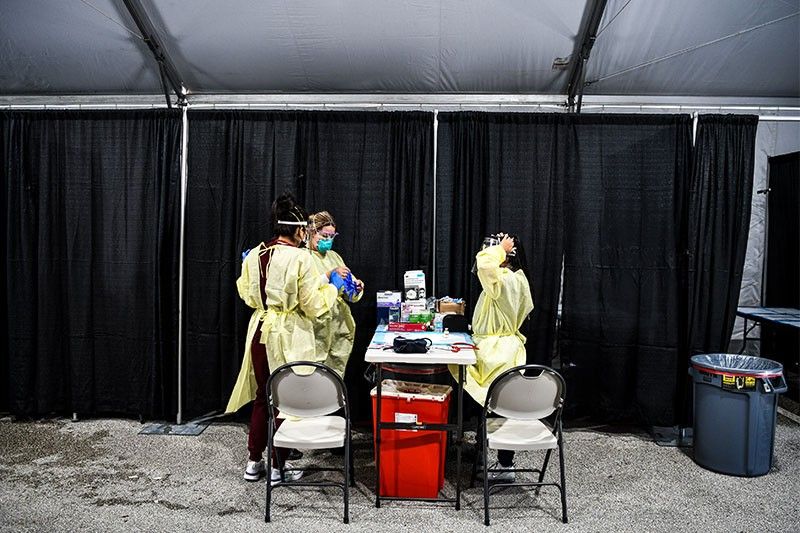WHO backs antibody treatment for high-risk COVID-19 patients

PARIS, France — The World Health Organization (WHO) on Friday recommended the synthetic antibody treatment Regeneron for Covid-19, but only in patients with specific health profiles.
Persons with non-severe Covid-19 who are nonetheless at high risk of hospitalisation can take the antibody combo, as should critically ill patients unable to mount an adequate immune response, according to a WHO finding published in BMJ.
Regeneron is only the third treatment for Covid to be recommended by the global health authority, which added it to its "living WHO guideline" on drugs for Covid-19.
In July, WHO gave the nod to a class of drugs that act to suppress a dangerous overreaction of the immune system to the SARS-CoV-2 virus that causes Covid.
These medicines work well in tandem with corticosteroids, which were first recommended by WHO for use in Covid patients in September 2020.
The Regeneron cocktail of synthetic antibodies — casirivimab and imdevimab — has been found to reduce the risk of hospitalisation for unvaccinated, elderly or immunosuppressed patients with Covid, according to three clinical trials that have yet to be peer reviewed, according to the BMJ.
For the second category of patient covered by the new WHO recommendation, another trial has reported a reduced number of deaths, and cases requiring mechanical ventilation, in patients taking the drugs.
"For all other covid-19 patients, any benefits of this antibody treatment are unlikely to be meaningful," the WHO concluded.
Designed by biotech firm Regeneron and marketed by pharmaceutical giant Roche under the name Ronapreve, the treatment was given to former US President Donald Trump during his brush with coronavirus.
When used together, the monoclonal antibodies casirivimab and imdevimab bind to the SARS-CoV-2 spike protein, neutralising the virus’s ability to infect cells.
The World Health Organization "welcomes the addition of another therapeutic to the world’s arsenal against COVID-19", but expressed concern about the impact of high prices on health inequality.
"Given the high cost and low availability of the combination therapy, [global health agency] UNITAID is negotiating with Roche Pharmaceutical ... for lower prices and equitable distribution across all regions, especially in low- and middle-income countries," WHO said in a separate statement.
"WHO is also in discussions with the company for a donation and distribution of the drug through UNICEF."
The UN health authority also called on other manufacturers to submit "bio-similar" versions of the drug for approval.
In July, Japan had become the first country to fully approve Regeneron's antibody treatment for patients with mild to moderate Covid-19.
The antibody combination has been authorised for emergency or temporary pandemic use in a number of countries and regions, including the European Union, United States, India, Switzerland and Canada.




















